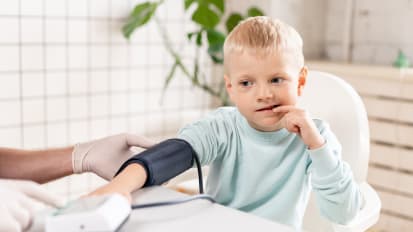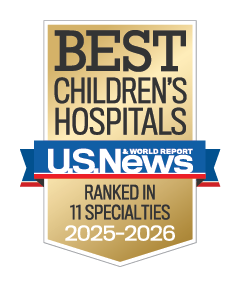Search Videos and More
 Video
Video
Curbing Cardiovascular Disease Early: How Pediatricians Can Make a Difference
Atherosclerosis starts in childhood – and so should screening. In this primary care guide, pediatric endocrinologist Sonali Belapurkar, MD, reveals which patients need evaluation. Video
Video
Little Kids With Big BP Numbers: What Every Pediatrician Should Know About Hypertension
Pediatric nephrologist Elizabeth Black, MD, offers a lesson in accurate BP measurement, explains which populations should have additional screening, and notes the benefits of ambulatory monitoring as well as when to order it. Video
Video
Vaginal Bleeding Before Puberty: A Specialist’s Practical Tips on Evaluation and Care
Gynecologist Sloane Berger-Chen, MD, whose focus is pediatric patients, explains her experience-based evaluation process. Video
Video
ABCs of Asthma: Using the Guidelines to Provide Individualized Care
To effectively manage this common chronic disease in children, providers must have a firm grasp on categorizing the condition and how to step therapy up (and down). Video
Video
Managing Picky Eaters: How to Assess Nutritional Status and Talk to Worried Parents
When kids eat very little or only a few foods, they risk developing nutrient deficiencies – or behavioral issues because of how their parents respond. Video
Video
Hematuria in Everyday Pediatrics: Significance and First Steps
Blood in urine is common in little kids. In this guide, pediatric nephrologist Elizabeth Black, MD, MAS, walks primary care providers through the process that starts with a positive dipstick. She describes types of hematuria, reviews the many causes, clarifies “persistent” hematuria, and covers workup options. Video
Video
Adolescent PCOS: Primary Care Management of a Common (and Challenging) Condition
Polycystic ovary syndrome in adolescents is common, has different diagnostic criteria from those of adult PCOS, and carries lifelong health implications. In this guide, pediatric endocrinologist Jennifer Olson, MD, FAAP, offers a clear path for PCPs suspecting the condition, covering questions to ask patients, tests to order and treatment options. Video
Video
Trauma-Informed Pediatric Care: How to Be Your Patient’s Ally
Caroline Cortezia, MS, CCLS, UCSF’s supervisor of child life services, explains how the pandemic has increased toxic stress in the pediatric population, especially in kids with behavioral disorders. Video
Video
High-Tech Living With Diabetes: Devices and Strategies for Pediatric Patients
Pediatric endocrinologist Gina Capodanno, MD, explains differences in diabetes between children and adults, then presents a thorough guide to the technologies – continuous glucose monitors, insulin pumps, and hybrid monitor-and-delivery systems – that are making life easier for families. Video
Video
Meet the Pediatric Liver Center’s Dedicated Team and Learn About Referral
This quick video introduces members of the UCSF care team for infants and children with liver and bile duct disorders. Learn how they work to make treatment easier on families, prepare kids for surgery (including transplants), facilitate the referral process and keep providers informed. Video
Video
Snares of Survivorship: Understanding Late Effects of Childhood Cancer Treatment
Oncology treatments save young lives but impact neurocognitive development and psychosocial health, potentially causing problems such as IQ, memory, and hearing deficits, as well as depression, anxiety and social difficulties. Video
Video
Sensitive and Smart Sexual Health Care: Meeting the Needs of Adolescents Now
Adolescent medicine specialist Javay Ross, MD, discusses key questions and how to ask them; offers time-saving tips on taking histories, screening appropriately and prescribing wisely; and explains how to guide patients to their best birth control options.


